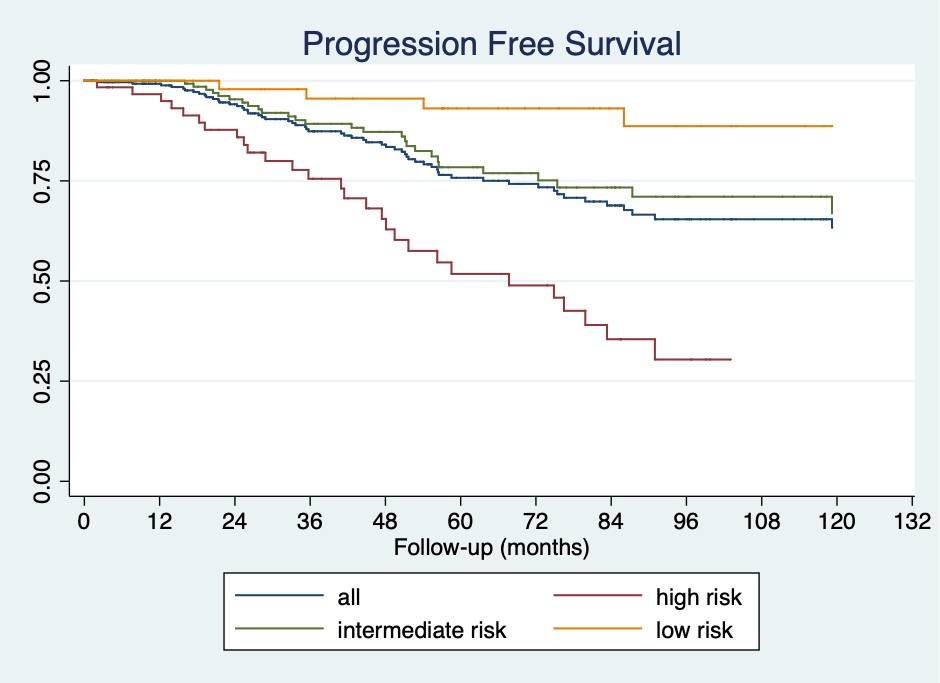Back
Poster, Podium & Video Sessions
Moderated Poster
MP55: Prostate Cancer: Localized: Ablative Therapy
MP55-20: Outcomes of Primary Cryotherapy for Localized Prostate Cancer: 14-years Single Institution Experience
Monday, May 16, 2022
8:45 AM – 10:00 AM
Location: Room 225
Andrew Wang*, Greg Mansour, Robert Given, Virginia Beach, VA

Andrew Wang, MD
Eastern Virginia Medical School
Poster Presenter(s)
Introduction: Cryoablation, a minimally invasive ablative therapy, is recommended as an alternative treatment for localized prostate cancer (PCa) given its favorable side effect profiles on bladder and bowel function, especially in those with low- and intermediate- risk disease who are not suitable for surgery or radiation therapy. Long-term outcomes are not well characterized in the literature. We aim to report our experience with the procedure at our institution.
Methods: We retrospectively reviewed all men who underwent primary whole-gland cryoablation for localized prostate cancer at our institution from 2005 through 2019. Functional and oncologic outcomes were assessed. Recurrence-free survival was studied using Kaplan-Meier survival analysis.
Results: Of the 276 patients, 80% had D’Amico high- (22.8%) or intermediate- (57.6%) risk disease. Average age was 71.2 years while median follow-up was 4.7 years. Majority of the patients (83%) achieved prostate-specific antigen (PSA) nadir <0.4 ng/ml. This was associated with improved disease-free survival (p < 0.00001). De novo incontinence (2%) and De novo ED rates (12%) were relatively low, and complications such as urethral stricture (n = 1) and rectal urethral fistula (n = 0) were extremely rare. 5 year clinical recurrence-free survival was 70% overall and 94% for low-, 86% for intermediate-, and 63% for high-risk patients in our cohort.
Conclusions: Primary whole-gland cryoablation is a safe and durable medium-term treatment alternative to radiation therapy and radical prostatectomy for patients with low- and intermediate risk disease.
Source of Funding: None

Methods: We retrospectively reviewed all men who underwent primary whole-gland cryoablation for localized prostate cancer at our institution from 2005 through 2019. Functional and oncologic outcomes were assessed. Recurrence-free survival was studied using Kaplan-Meier survival analysis.
Results: Of the 276 patients, 80% had D’Amico high- (22.8%) or intermediate- (57.6%) risk disease. Average age was 71.2 years while median follow-up was 4.7 years. Majority of the patients (83%) achieved prostate-specific antigen (PSA) nadir <0.4 ng/ml. This was associated with improved disease-free survival (p < 0.00001). De novo incontinence (2%) and De novo ED rates (12%) were relatively low, and complications such as urethral stricture (n = 1) and rectal urethral fistula (n = 0) were extremely rare. 5 year clinical recurrence-free survival was 70% overall and 94% for low-, 86% for intermediate-, and 63% for high-risk patients in our cohort.
Conclusions: Primary whole-gland cryoablation is a safe and durable medium-term treatment alternative to radiation therapy and radical prostatectomy for patients with low- and intermediate risk disease.
Source of Funding: None


.jpg)
.jpg)